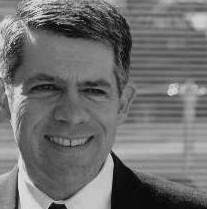
has also led to an unprecedented moral decay. To borrow from the thoughts of Dostoevsky, whose fiction manifests the concern that moral decay of the individual springs from his neglect of his spiritual being, Freedom is what separates man form the animal kingdom, but without values,

“The first manifestations of newly-freed man are exaggerated individualism, self-isolation, and rebellion against the exterior harmony of the world; he develops an unhealthy self-love which moves him to explore the lower regions of his being...” (Nicholas Berdyaev, Dostoevsky, Ne York: Living Age Books, 1957, p. 133.)
When an entire country finds itself under the illusion of being “newly freed” from values, norms become situational and decay accelerates. Some of the developments in America are sexual permissiveness, less emphasis on the family unit, apathy toward abortion, and a misunderstanding of such values as freedom of speech. Values today are being defined more and more by Kant’s hypothetical imperative (do an act because of the consequence is desirable), and less and less by his categorical imperative (act only upon a maxim that you think should be for all men at all times). One “illusionist,” Skinner, would disagree with Kant and say that man’s actions are amoral because they are only reactions to his environment. In this clever half-truth, Skinner is correct; man does react to his environment. What he misses is, man has the capability to mold his environment to more closely parallel “higher values.” And in either case, man always has the freedom to choose, not just simply react. Thucydides, Aristotle, Augustine, Aquinas, Jefferson, Weber, Dewey, and Niebuhr saw the importance of environment, and it is time we should also. Dostoevsky tells a story of two trees, either of which could symbolize the America of the future. The dialogue between the trees continues,
“But I grow towards the sun,” says the healthy tree.
“There is no sun,” say the little shriveled tree. “Neither I nor you can see it.”
“But I feel the sun, its lovely to open out to its warmth and, as it were, to touch it with ever new and sprouting buds.”
“I too feel the warmth,” answers the little shriveled tree. “It is a condition that repeats itself in us regularly: a condition known as spring. But I am not so credulous as you are, and I reserve all my sap for my own inner sustenance.”
So the little shriveled tree continues in the garden in the delusion that it is inwardly self-sufficient, until the gardener comes and cuts it down. (Vyacheslav Ivanov, Freedom and the Tragic Life, New York: The Noonday Press, 1959, p. 136.)

We are free to choose, but that does not change the universal principles, or the consequences of our choices. In the final analysis, it is not God, nor God’s laws that are on trial, we are.




Wow! I am impressed with your thoughts and am excited to read more. I have only recently in my life (for the last 5 years or so) become interested in politics and in classical literature as well - so these are stimulating articles you write. So glad I found you on FB and can add your blog to my list on google reader! =)
ReplyDelete